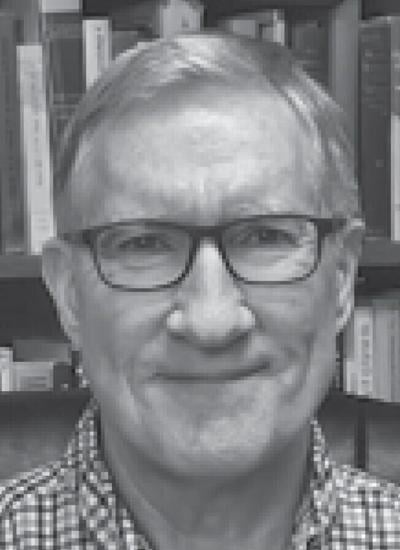Every year on Independence Day, I begin reading a book that pertains to our nation�����Ƶ�s founding or significant history. Sometimes it is as fundamental as our Declaration of Independence and Constitution. Both are relatively short reads, but they set out what our country is all about.
Other times I read a biography. I have enjoyed books on Thomas Jefferson, Abraham Lincoln, George Washington, and several on the War for Independence. I have struggled to read The Federalist Papers, I must confess. Alas. Maybe next year I will attack them again (along with The Anti-Federalist Papers, just to be fair).
I have begun to read a thorough biography of John Adams by David McCullough.
That book spent some time sitting just to my left on the table beside my desk. John was looking at me, perhaps wondering if I was going to read all about him. I conceded and am glad I did.
I have adopted this exercise in reading every year because I have come to appreciate more and more that we live in an amazing nation with a remarkable, though imperfect, founding.
You might note that though protesters often flood the streets waving flags from the countries they have left, they are in no hurry to go back where they came from. They know that in many cases, if they were to protest against the nation and/or government like that in their home countries, they might shorten their freedom and even lives considerably. They have found a measure of freedom in the United States that is hard-won and hard-kept �����Ƶ� and rare.
The Declaration of Independence begins with this affirmation: �����Ƶ�We hold these truths to be self-evident, that all men are created equal, that they are endowed by their Creator with certain unalienable Rights, that among these are Life, Liberty and the pursuit of Happiness.�����Ƶ� Note that such �����Ƶ�unalienable rights�����Ƶ� are given by the Creator, not granted by the nation or the government. It remains for the people to cherish them, protect them, and assure them for every individual citizen.
Students of history know that we have struggled to fully apply the principles upon which the nation is founded. �����Ƶ�All men are created equal�����Ƶ� has now been rightly applied to both sexes and to all the ethnicities of the nation. It has taken blood, sweat, tears and toil to bring this about, but we have made huge strides in the right direction over the decades since our founding.
We paid the debt incurred by decades of slavery with the blood of well over 600,000 Americans, including the assassination of President Abraham Lincoln. �����Ƶ�Nothing worth having comes easy,�����Ƶ� I have heard. This surely applies to the American experiment in self-government.
And along with this temporary blessing in America, those of us who belong to Jesus Christ can also say, �����Ƶ�Our citizenship is in heaven�����Ƶ� (Philippians 3:20). The Christian declaration of faith is �����Ƶ�Jesus is Lord�����Ƶ� (see Romans 10:9), and among other things, this means that He is of supreme authority over the lives of His people. We are taught by Him to �����Ƶ�seek first the kingdom of God and His righteousness�����Ƶ� (Matthew 6:33) and to trust Him for everything else. As a result, we have no illusion where our ultimate hope and allegiance lie (hint: they are not with a president, a court, or a legislature).
As I see it, we have reason to celebrate our dual citizenship right now.
Our temporary citizenship is a unique blessing �����Ƶ� a trust from God for the benefit of the world. Our eternal citizenship is imperishable. �����Ƶ�We await a Savior from heaven, our Lord Jesus Christ�����Ƶ� (Philippians 3:21). May He find us faithful here and now until He returns.


